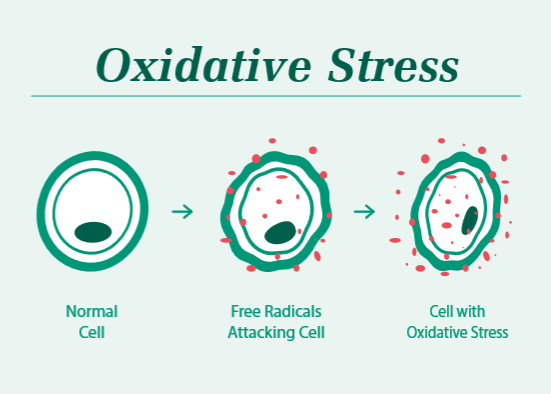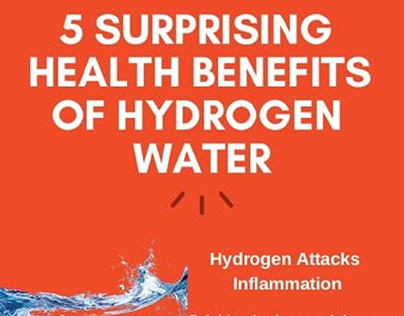
You’ve probably heard the term ‘free radical’ before but you may not really know what it means. With every breath, we take in the oxygen we need to live. Our bodies essentially “burn” that oxygen in a chemical reaction that produces energy while also releasing some unstable oxygen molecules called reactive oxygen species (ROS) or free radicals. Left unchecked, these free radicals can cause oxidative stress, a condition that could be seriously harmful to your health.
What makes free radicals unstable?
Free radicals are oxygen-containing molecules that have an uneven number of electrons. In an effort to stabilize, these free radicals will strip electrons from other molecules, causing a domino-like series of damage to the cells throughout the body. This is the basis of oxidative stress and it is responsible for everything from the aging process to the development of various diseases.
Can oxidative stress be prevented?
The good news it that our bodies have ways of dealing with oxidative stress and the free radicals that cause it. Antioxidants, such as those found naturally in the foods we eat, help to neutralize and remove the free radicals that are produced through normal metabolic processes before they can wreak havoc.
However, when the body becomes overwhelmed due to additional pressures such as stress or exposure to toxins, the damage caused by free radicals may go unchecked. The result is accumulated oxidative stress that can be damaging to our health.
How can molecular hydrogen help to neutralize oxidative stress?
The key to neutralizing oxidative stress is to introduce electrons that can bond with the free radicals to stabilize them before they can cause damage. A study published in the journal Biochimica et Biophysica Acta found that molecular hydrogen is a “novel antioxidant with great potential for actual medical applications.”
The study looked at a number of methods for introducing molecular hydrogen, including drinking hydrogen water and inhaling hydrogen gas, and found that “hydrogen has many advantages for therapeutic and preventive applications, and shows not only anti-oxidative stress effects, but also has various anti inflammatory and anti-allergic effects.”
Molecular hydrogen works to stabilize free radicals by providing hydrogen atoms that can bond with the unstable oxygen atoms and render them harmless. In other words, molecular hydrogen helps to stop oxidative stress and prevent the damage that it can cause to cells and your health.


